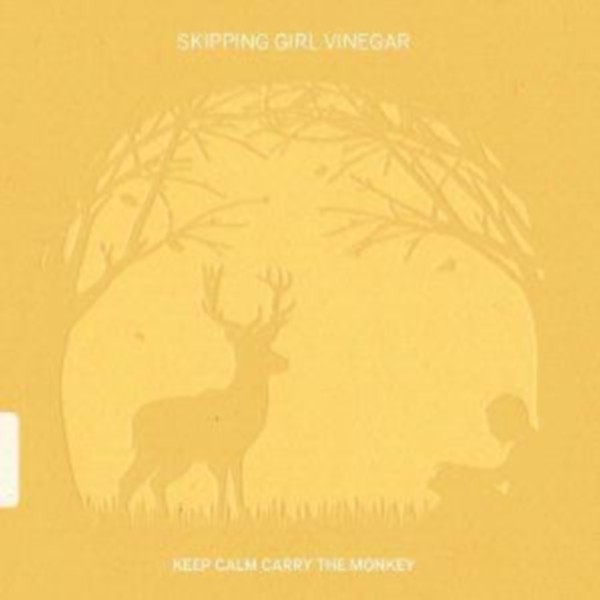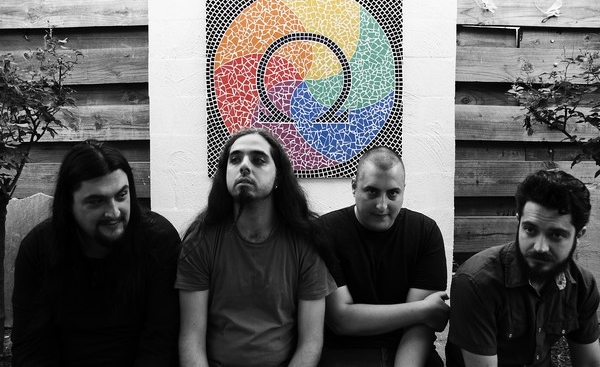To clarify, The Great Wave’s not wholly drenched in melancholy. In fact, it starts off with a string of upbeat, single-ready tracks. Half way through, however, there’s a conspicuous shift into more vulnerable territory. “We’ve always made full bodies of work of songs, and sequencing is really important to me,” says frontman Mark Lang. “There are some songs later in the record that industry people were saying should be further up the record, but to me, it’s much more about the flow of listening across a record and the journey you travel on through it.”
The journey encapsulated by The Great Wave specifically relates to what’s transpired in Lang’s life since the release of Skipping Girl Vinegar’s second LP, 2011’s Keep Calm Carry The Monkey. That album gave the band an opportunity to tour overseas, but upon returning home, Lang’s priorities radically shifted.
“[Keep Calm Carry The Monkey] was starting to do pretty well in the US college system,” he explains. “We travelled over there and were doing a bunch of stuff. Then I came home – my partner and I were living in Melbourne and we’d just had a little guy. We decided we might move down the coast to see how that would feel and I’d keep writing the next record, then follow up on the US and all the things that were going on. But about a month in from moving down here, my wife was diagnosed with ovarian cancer, so our whole world spun.”
The Great Wave demonstrates how songwriting is an effective means for working through emotional upheaval and subsequently gaining clarity. However, once Lang learned of his wife’s illness, his creative impulse disappeared for a significant period.
“When we were going through the pit of it all, I couldn’t write at all,” he says. “All my focus and energy was wrapped onto Sheridan and to making things as normal as possible for our little guy. I didn’t do anything for maybe seven months.”
Under regular circumstances, Lang describes himself as a “compulsive songwriter.” Thus, once the floodgates re-opened, ideas came rushing out. “I wandered into the studio one day and the song Lay With Me fell out in literally one complete pass,” he says. “From there, another song, Lost in the Heads, came very quickly. I wasn’t thinking ‘I’ve got to write a record,’ it was just an emotional thing. I think partly why those songs are so strong, and in the few shows we’ve done people have really resonated with them, is because they come from that place.”
Interestingly, Lay With Me is the album’s closing number, while Lost in the Heads sits in the middle of the song sequence. “Lost in the Heads is positioned in the centre of the record because it’s really about how life was travelling along and you make your plans, but stuff can happen and you drop down to the bottom. We were very fortunate the fog cleared and we found our way back to land, for many people that doesn’t happen. You scratch the surface and everyone’s struggling with something,” Lang says. “We’re all trying to work our way through things. These aren’t songs about ovarian cancer, these are songs about struggle and life and mortality and all those things.
“I was unsure about whether I wanted to release them,” he adds. “It’s been a really painful record to make on a number of fronts, but I think because the approach to it was as honest as we could – I was just making it as it happened – my hope is that it’ll be helpful for other people that are transitioning through something like this.”
BY AUGUSTUS WELBY







